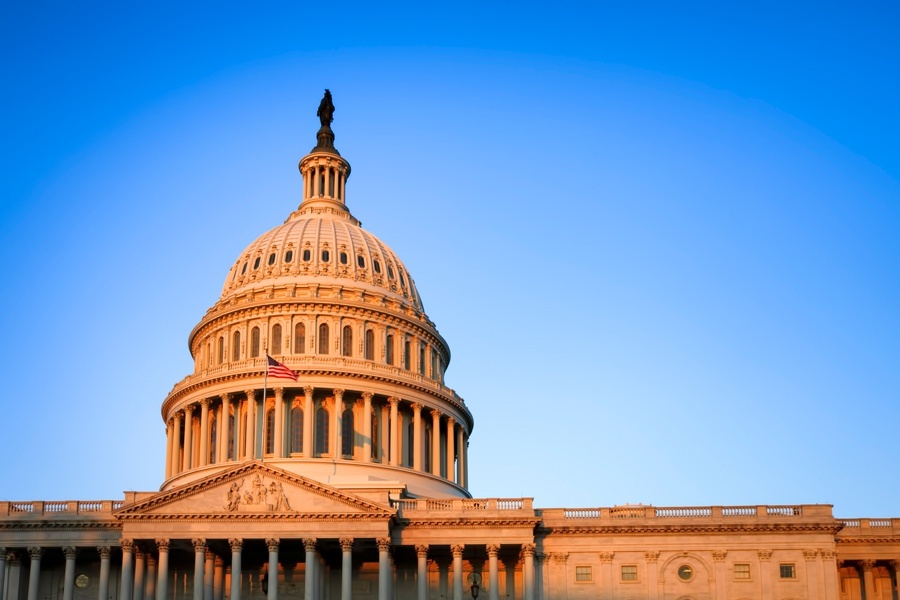

The U.S. was stripped of its top-tier sovereign credit rating by Fitch Ratings, echoing a move made more than a decade ago by S&P.
The credit assessor downgraded the US from AAA, a ranking the nation has held at Fitch since at least 1994, according to data compiled by Bloomberg. The move comes in the wake of major political battles over the nation’s borrowing and repeated standoffs over raising the debt limit. While the most recent legislative impasse was resolved, it remains a potential issue of concern going forward.
“The rating downgrade of the United States reflects the expected fiscal deterioration over the next three years, a high and growing general government debt burden, and the erosion of governance relative to ‘AA’ and ‘AAA’ rated peers over the last two decades that has manifested in repeated debt limit standoffs and last-minute resolutions,” Fitch said in a statement.
Fitch had warned May 24 that there was a risk of a downgrade. The US is now rated AA+ by Fitch, one step below AAA, and the assessor has a stable outlook on the country.
Moody’s Investors Service currently rates the US sovereign Aaa, its top rating. S&P Global Ratings has it at a score of AA+, one notch below the top tier, having removed its top score back in 2011 on the heels of an earlier debt-ceiling crisis.
Treasury Secretary Janet Yellen responded to the downgrade, calling it “arbitrary” and “outdated.”
Treasury markets were closed at the time of the announcement.
“I suspect the market will be in two minds about it — at face value, it’s a black mark against the U.S.’s reputation and standing, but equally, if it fuels market nervousness and a risk-off move, it could easily see safe-haven buying of U.S. Treasuries and the dollar,” said David Croy, strategist at Australia & New Zealand Banking Group in Wellington. “It’s finely balanced.”

Since Vis Raghavan took over the reins last year, several have jumped ship.

Chasing productivity is one thing, but when you're cutting corners, missing details, and making mistakes, it's time to take a step back.

It is not clear how many employees will be affected, but none of the private partnership's 20,000 financial advisors will see their jobs at risk.

The historic summer sitting saw a roughly two-thirds pass rate, with most CFP hopefuls falling in the under-40 age group.

"The greed and deception of this Ponzi scheme has resulted in the same way they have throughout history," said Daniel Brubaker, U.S. Postal Inspection Service inspector in charge.
Stan Gregor, Chairman & CEO of Summit Financial Holdings, explores how RIAs can meet growing demand for family office-style services among mass affluent clients through tax-first planning, technology, and collaboration—positioning firms for long-term success
Chris Vizzi, Co-Founder & Partner of South Coast Investment Advisors, LLC, shares how 2025 estate tax changes—$13.99M per person—offer more than tax savings. Learn how to pass on purpose, values, and vision to unite generations and give wealth lasting meaning
